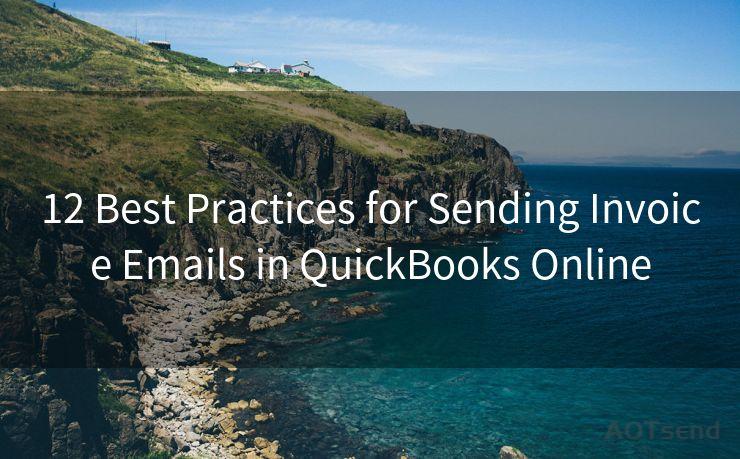12 Best Practices for Sending Invoice Emails in QuickBooks Online




QuickBooks Online has become a popular choice for small businesses and freelancers to manage their finances. Among its many features, sending invoice emails to clients is a crucial one. To ensure these emails are effective and professional, here are 12 best practices for sending invoice emails in QuickBooks Online.
1. Clear and Professional Subject Line
The subject line of your invoice email should be clear and to the point. A simple “Invoice #1234 from [Your Company Name]” works well. This helps the recipient understand the email’s purpose immediately.
2. Personalized Greeting
Start your email with a personalized greeting, addressing the client by name. This adds a personal touch and makes the email less impersonal.
3. Invoice Details and Summary
Provide a brief summary of the invoice, including the invoice number, date, and the total amount due. You can also include a breakdown of the services or products provided.
4. Clear Payment Instructions
Include clear and detailed payment instructions in the email body. Specify the payment methods you accept, the payment deadline, and any late payment penalties.
5. Attach the Invoice
Make sure to attach the actual invoice file to the email. QuickBooks Online allows you to easily generate and send invoices as PDF attachments.
6. Professional Tone and Language
Maintain a professional tone and language in your invoice email. Avoid colloquial or informal language, and stick to a formal and polite register.
7. Contact Information
Provide your contact information in case the client has any questions or concerns about the invoice. This can include your email address, phone number, or a link to your website’s contact form.
8. Thank the Client
Always thank the client for their business at the end of the email. This shows appreciation and professionalism.
9. Test Emails
Before sending invoice emails to clients, send a test email to yourself to check the formatting, layout, and readability.
10. Follow-Up
Consider sending a follow-up email if payment is not received by the due date. This can be a gentle reminder to the client without being too pushy.
11. Mobile-Friendly Formatting
Ensure that your invoice emails are mobile-friendly, as many clients may check their emails on their smartphones.
12. Regularly Update Templates
Periodically review and update your invoice email templates to reflect any changes in your business or payment policies.
By following these 12 best practices for sending invoice emails in QuickBooks Online, you can ensure that your invoices are clear, professional, and effective. Remember, 12 Best Practices for Sending Invoice Emails in QuickBooks Online are not just about getting paid promptly but also about maintaining a positive relationship with your clients. By adhering to these guidelines, you’ll not only streamline your invoicing process but also enhance your brand image and customer satisfaction.
🔔🔔🔔
【AOTsend Email API】:AOTsend is a Managed Email Service for sending transactional emails. Support Email Types: reminders, authentication, confirmations, notifications, verification codes, invoices, password resets, account activations, billing statements, two-factor authentication (2FA), and one-time passwords (OTP) emails, etc. $0.28 per 1000 Emails. 99% Delivery, 98% Inbox Rate.
You might be interested in:
Why did we start the AOTsend project, Brand Story?
What is a Managed Email API, How it Works?
Best 25+ Email Marketing Platforms (Authority,Keywords&Traffic Comparison)
Best 24+ Email Marketing Service (Price, Pros&Cons Comparison)
Email APIs vs SMTP: How they Works, Any Difference?





Scan the QR code to access on your mobile device.
Copyright notice: This article is published by AotSend. Reproduction requires attribution.
Article Link:https://www.mailwot.com/p3908.html



